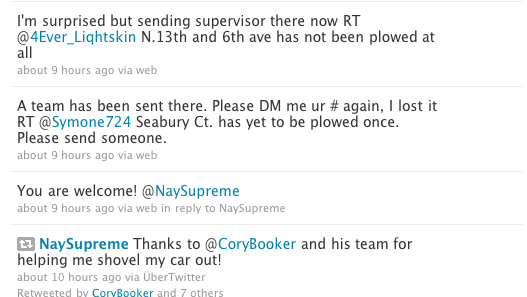 Last week I rambled into Boston and as soon as I set my bag down Chris Lydon said, “Let’s go interview Jaron Lanier.” And as always, I was pleased and excited to not only get to record another interview with Chris, but very glad that I would finally get to speak with Jaron, who’s previous book “You Are Not A Gadget” had a profound effect on my thinking.
Last week I rambled into Boston and as soon as I set my bag down Chris Lydon said, “Let’s go interview Jaron Lanier.” And as always, I was pleased and excited to not only get to record another interview with Chris, but very glad that I would finally get to speak with Jaron, who’s previous book “You Are Not A Gadget” had a profound effect on my thinking.
What had most stayed with me from the book was the discussion of the danger posed by group think and the “crowd” mentality that seems to dominate large parts of the internet. Despite the endless possibilities, Lanier pointed out that there is and has been a lot of cases of people all doing the same thing; talking about the same topics, designing websites the same way, etc. A trend that I too have observed and wondered about for some time now. But at the same time, like Jaron points out, there is still plenty to be excited about and the opportunity is still here- for people to challenge these conventions and steer the internet using a more critical-free thinking approach. – At least, this is what I understood from the book.
Meeting Jaron in a very impressive Boston Hotel was admittedly very exciting but also rather intimidating. As a man who writes and speaks often, interviews seemed to be routine and easily irritating for him. I think both Chris and myself wanted to do our best to keep him interested in the interview while not letting the answers sound too routine. Thankfully I think we found a balance.
Perhaps the highlight of the interview for me were his theories on the value of information. Like many people out there who used to believe 100% in the idea that information should be free and this will all work out somehow, Lanier has changed his stance on this issue. He believes it was a mistake and that there needs to be a return to recognizing and giving value where information is created or exchanged. A familiar idea, especially to fans and users of micropayment systems (like flattr here on my site) who have long been making use of a system where work you enjoy and want to help continue receives a piece of your monthly media budget. Jaron talked about how this trend of giving our information for free and the devaluing of so many jobs within a growing list of sectors, is dangerous and spreading fast. It used to be something we bloggers and podcasters thought was only our issue, but now it could be architects, manufacturers of all types, translators, etc, who may increasingly find their work isn’t worth much of anything thanks other sources of “free” information that have emerged.
When it is published I will no doubt listen to the interview a few times in order to properly understand both what Jaron is worried about, what he foresees for the future. But what I did understand is that all his experience and research points to one solution to get us out of this pyramid scheme style internet where we put in work and information for free and then someone else profits from our contribution- returning the practice of giving value to information. You provide me with X, I give you Y in exchange. Instead of an unsustainable economy where, as he describes it, “they that have the biggest computers always win,” we could still move towards an internet economy where we the individuals adopt the tradition of recognizing and giving value to one another’s contributions, even on the smallest of scales.

 When looking critically at changes in democracy and politics around the world, much has been said about the personalization of politics. In many countries, where politics may have once been about the policies of a party and choosing between those parties at the ballot box, today it is increasingly all about the individual candidate.
When looking critically at changes in democracy and politics around the world, much has been said about the personalization of politics. In many countries, where politics may have once been about the policies of a party and choosing between those parties at the ballot box, today it is increasingly all about the individual candidate. This might all sound well and good, people getting what they wish; a direct democracy perhaps? If we look at the phenomenon of Mayors who make use of twitter on a regular basis to communicate with the public, we find what is very much another example of this personalized representation. Many, including myself, have celebrated this development, as citizens are actively hearing about their election official’s daily activities, and providing real time feedback.
This might all sound well and good, people getting what they wish; a direct democracy perhaps? If we look at the phenomenon of Mayors who make use of twitter on a regular basis to communicate with the public, we find what is very much another example of this personalized representation. Many, including myself, have celebrated this development, as citizens are actively hearing about their election official’s daily activities, and providing real time feedback.